Four Musketeers, or Why is it Dangerous to Reread Dumas Novels?
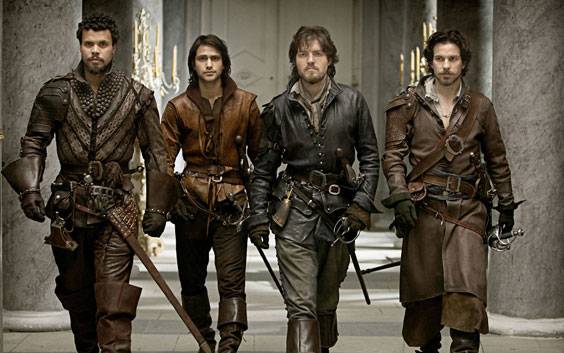
The result of the new reading turned out to be quite unexpected: I drew attention to the episodes that I had previously just ran with my eyes. And these episodes sometimes just shocked me. If to summarize the impression made on me by re-reading the novel, I will have to say that his characters this time seemed to me not so positive. And their behavior, in some cases, to put it mildly, is not too beautiful. For example, the noble Gascon nobleman d'Artagnan hires a servant named Planchet in Paris and does not pay him a stipulated salary. In response to Planchet’s legitimate requests to pay his salary debt, or, in extreme cases, to release him to another service, D'Artagnan severely beats him. This act causes the full approval of his friends of the Musketeers, who come to the delight of the "diplomatic talents" of the Gascon. The even more noble Athos demands complete silence from his servant Grimaud and does not speak to him himself: he must guess the wishes of his master by his glance or gestures. If Grimaud does not understand his master and is mistaken, Athos calmly and without any emotions beats him up. As a result, as Dumas writes (or rather, his next "literary negro"), poor Grimaud almost forgot how to speak. One should not think that A.Dyuma wrote an acute social novel denouncing the brutal manners of the time: nothing happened - all this is communicated between deeds and for granted. But back to the text. Here is a typical "little man", a downtrodden and unhappy haberdasher Bonnieu asks his noble tenant d'Artagnan (who owed him a decent amount for an apartment and is not going to give it away) protection and help in finding the missing wife. D'Artagnan eagerly promises that, and this, he begins to use unlimited credit from his landlord, demanding the best wine and snacks not only for himself, but also for his guests. But no assistance is provided, moreover, it allows the police to arrest him in front of their eyes, which causes confusion and displeasure even among his musketeers. And it is very easy to protect the haberdasher: d'Artagnan and his friends have both swords and pistols, and the police are unarmed. When the representatives of the law try to arrest the pretty wife of a haberdasher, who, without waiting for help, she herself ran away from custody, D'Artagnan would chase them alone, simply exposing a sword. And only now the Gascon still generously intends to provide real assistance to Mr. Bonacieux — he plans to replace him in the marital bed. It is also interesting behavior musketeers in hotels during the famous trip to England for the queen's pendants. Porthos, due to a trifle, got involved in a duel, was wounded and stayed in the hotel. The owner arranges for him the treatment at the local doctor and care. As a gratitude, Porthos threatens him with physical violence, and in general, demands not to disturb for such trifles as the payment of bills. Actually, he had the money - D'Artagnan gave him a quarter of the amount stolen by Mrs Bonacier from her husband, but Porthos lost it. And now, instead of trying to somehow come to an agreement with the owner, he is terrorizing the poor fellow who dares neither expel him nor complain to anyone. I think any of our "mate" from 90-s would have recognized that the noble Porthos is just a bespredelshchik and a scumbag and "bykuet not by concepts". The noble Athos is even more interesting: he is accused of trying to pay with fake coins, and this is clearly not about a prison or hard labor, everything will be safely resolved within an hour or two. But Athos is getting psyched, gets involved in a fight and, retreating, barricades in the master's cellar. The shelter is not very reliable: the cardinal would have a real arrest order, Athos would have been pulled out in 5 minutes. But, like the notorious "elusive Joe," no one needs Athos. Having found a fair amount of wine in the cellar, Athos forgets about everything and begins to do what he does best in this novel: he goes into the bout. The owner in the "privatized" cellar, he, of course, does not allow. And when d'Artagnan appears, the former earl acts according to the principle “that he has not eaten, then drank”: he spoils the remaining products and pours the unfinished wine. But this, of course, is just an innocent prank - this musketeer is capable of more. In a fit of drunken frankness, Athos tells us that he is not one of the last aristocrat: the count, "noble as Dandolo or Montmorency", "was the sovereign on his land and had the right to execute and pardon his subjects."
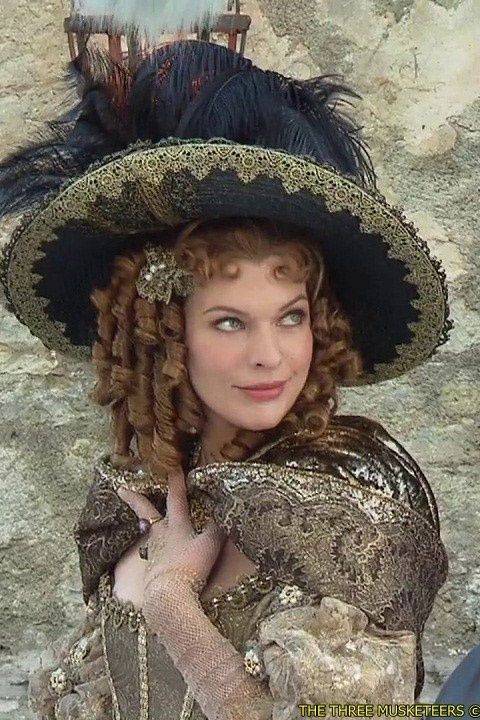
And, finding on his wife's shoulder a lily stamp, “completely tore the dress on the countess, tied her hands behind her back and hung her on a tree” (nothing special: “just murder,” says Athos to d'Artagnan, shocked by this story). Let's stop for a minute and try to figure out what a minor girl could have done that she was branded as a criminal? Athos quickly replies: "I was a thief." But later it turns out that his wife was not a thief: a priest in love with a young nun stole church vessels in order to go with her "to another part of France, where they could live peacefully, because no one would know them there." While attempting to escape, they were arrested. The priest was branded and sentenced to 10 years. The executioner from Lille turned out to be the brother of this priest, he decided that an inexperienced young girl (about 14 years old, probably she was then) is to blame for the fact that she was seduced by an adult pedophile. Something very familiar, spinning on the tongue, but, I remember!
He tracked her down and arbitrarily branded her. Meanwhile, the former nun who became a countess (according to Athos himself) was intelligent, educated, well-mannered and coped well with the role of the "first lady" of the county. Perhaps the girl is an orphan from a "good family" who was forcibly sent to the monastery by the guardian who appropriated her property. But Athos is too lazy to understand: he hung it - and there is no problem. So he does with a woman at that time equal to him in status. It is not difficult to imagine how the count addressed the "common people" who had the misfortune to reside in the territory subject to him. In general, the noble Athos was a typical "wild landowner." Is it any wonder that the descendants of the peasants, noble servants, innkeepers and other haberdashery, when the time of revolution came, began to destroy the descendants of Athos, Porthos, Aramis and D'Artagnan? Just because they were nobles. For too long, from generation to generation, hatred has accumulated and it has been too concentrated to figure out which of the former owners is right and who is to blame. The same thing happened in Russia.
So, the heroes of the novel treat people from the people almost as animals. And it doesn’t surprise anybody around: they behave in the same way as their colleagues, friends, relatives. But maybe among the people who are equal to themselves, these four were the embodiment and the standard of chivalry, the carriers of high moral ideals and possessed outstanding moral qualities? Alas, not everything is smooth here either. Porthos looks almost good against the rest: it’s just a close martinet, on such, in general, any army is holding on. He is also Alfonso, who is in the maintenance of a 50-year-old bourgeois (at that time, just an old woman). But these are Russian hussars, according to the anecdote, “they don’t take money from women” - the French royal musketeers take it with great pleasure. And no one calls Porthos not too flattering words like une catin or putaine, the only thing he hesitates is that his landlord is not a noblewoman.
With Athos, everything is much more serious: a former great master-tyrant, a misanthrope, an alcoholic and a degenerate with very strange notions of honor and unique moral principles. He does not consider it shameful to lose the property of his friend (d'Artagnan) to dice. And on an expedition for suspensions sent, being under investigation: he was recently released from prison under the honest word of Captain de Treville, who swore that until all the circumstances were cleared, Athos would not leave Paris. But what is the honor of his commander for a brilliant earl and what is an elementary feeling of gratitude? Most of the time, he is either drunk or in a state of apathy and indifference, "bright" intervals, during which he surprises everyone with refined manners and sound judgments, are rare and short-lived: "In the bad hours of Athos - and these hours often happened - everything was bright that was in him, went out, and his brilliant features were hidden, as if shrouded in deep darkness ... With his head down, with difficulty pronouncing certain phrases, Athos looked for hours at a time with faded eyes, then at the bottle and glass, then at Grimaud, who was used to obeying each of his sign, reading in the lifeless look of his master the slightest of his desires, immediately fulfilled them. If the gathering of four friends took place in one of those minutes, then two or three words uttered with the greatest effort — such was the share of Athos in the general conversation. But he drank one for four, and it had no effect on him, ”writes Dumas.
While the young wife sent to his death for the second time in her short life literally “rises from the ashes”, being in the role of a confidant and the closest employee of the greatest politician and statesman of France, the comte de la Fer fell to the level of an ordinary musketeer . Moreover, he was forced to fake his death, and hides his true name. Mr. Graf has done something very scandalous and bad: so serious that the usual excuse, they say, nothing special, “just murder,” did not work. And the crime is clearly more serious than the offense of a young girl who had the misfortune of becoming his wife. By the way, did you notice how readily, almost joyfully, does the earl get rid of his young, beautiful and immaculate spouse? And then he avoids women, preferring the company of wine bottles to them. Involuntarily appear thoughts about the impotence of Athos, or - about his latent homosexuality.
But Aramis - narcissistic hypocrite and hypocrite, caring for a little more than other women. Between times, Dumas reports that
Later:
Next:
And more:
And also:
And finally:
In general, the more “musketeer” was Aramis, in today's Europe I would definitely have descended on my own. And Dumas claims that he is the lover of the state criminal - Marie Aime de Rohan-Monbazon, Duchess de Chevreuse. And this is very serious.
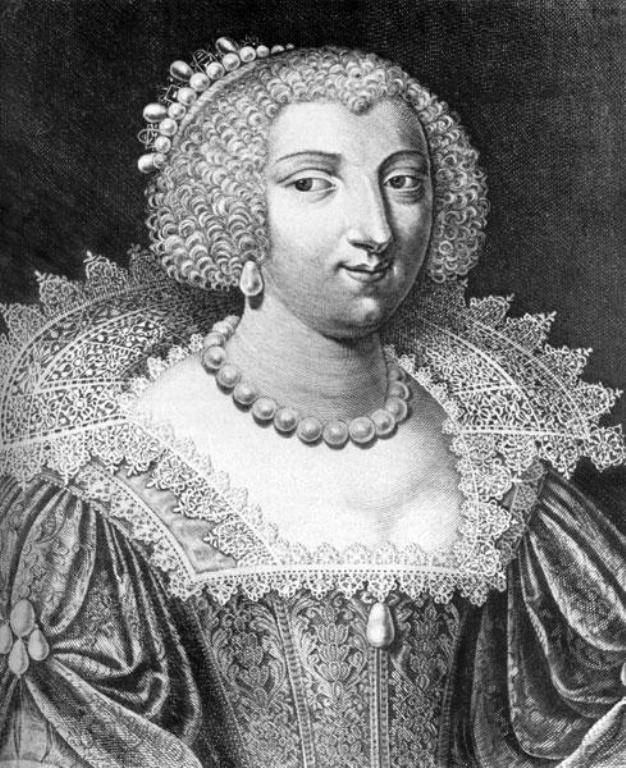
The list of charges against this lady is quite impressive:
The intrigue around the connection of Anna of Austria with the Duke of Buckingham (1623-1624) is the most harmless of them.
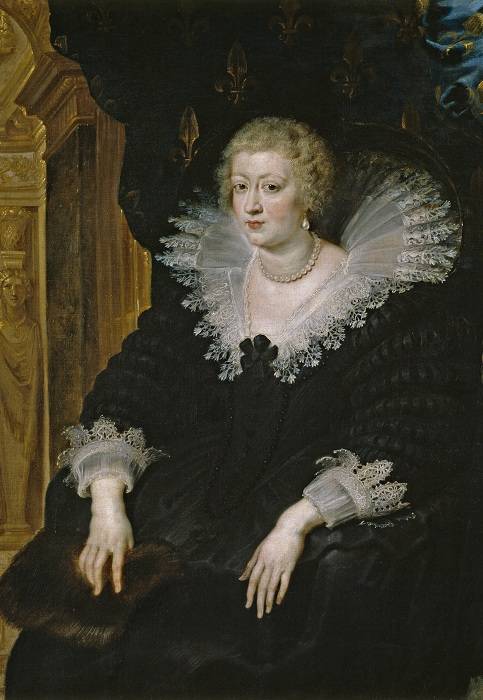
The transfer of secret documents stolen from a lover to Spain, and the organization of the Queen's correspondence with the King of Spain (1637) is already more serious.
Finally, planning a coup in favor of Gaston Orleans, in which Louis XIII was to lose the throne.
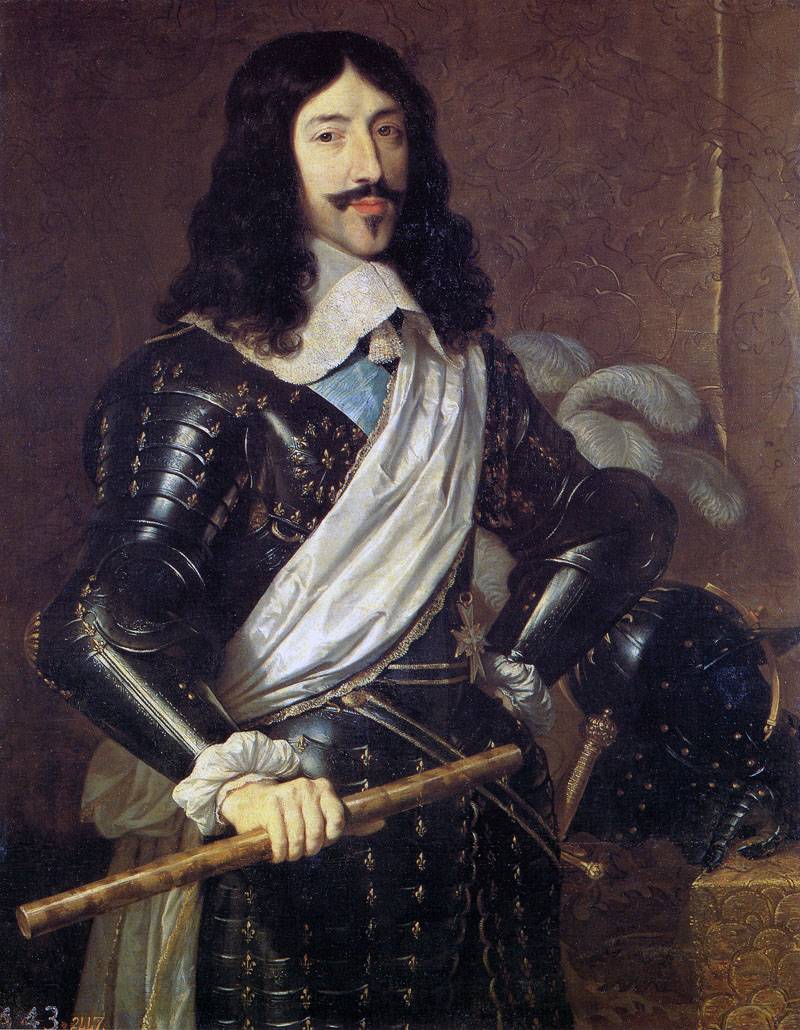
And part in the plot of the Count Chalet (1626) to assassinate Cardinal Richelieu.
After the death of Richelieu, the duchess became a participant in the “Conspiracy of the Arrogant” directed against Mazarin (1643).
Remember history with a handkerchief that he so improperly raised from the ground and gave him d'Artagnan? Everyone usually explains Aramis' anger with his concern for the honor of a lady. No, everything is much more serious: a handkerchief is a ticket to Bastille, this is a password, a secret sign with which the duchess gives orders and orders to her associates. The second such scarf d'Artagnan will see Mrs. Bonacier. During the secret visit to Paris of the Duke of Buckingham (head of a hostile state!), The Duchess voluntarily leaves the place of his exile (Tours - Dumas is mistaken here, the Duchess is still active in Paris, but takes an active part in the intrigue) she leads the accomplices from the apartment of Aramis. And Aramis himself is misleading the people of Richelieu, successfully portraying Buckingham: “Some tall man, black-haired, with nobleman’s manners, resembling your stranger, D'Artagnan, accompanied by five or six people who followed him a dozen paces, approached he said to me: “Mr. Duke,” and then continued: “And you, ma'am,” already addressing the lady who rested on my hand ... favor getting into the carriage and do not try to resist or make the slightest noise. ”
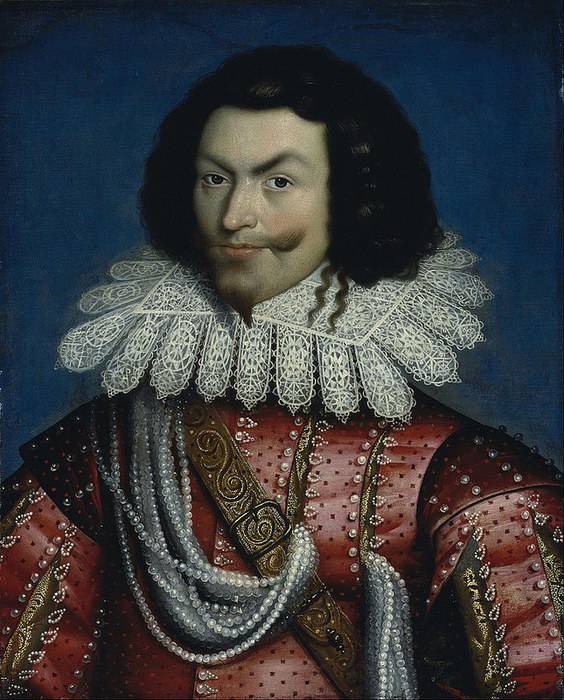
But this is not all: there is little betrayal in favor of the English Aramis, Dumas does not spare the hero and tells another interesting story. Aramis’s house is a beggar, and, having ascertained his identity, passes a purse with Spanish gold coins. And also a letter from de Chevreuse, in which the duchess calls the guest a Spanish grandee. Normal situation? A Spanish grand with pockets full of gold, instead of visiting the best houses and social salons of Paris, wanders around France in a beggar's costume. From the point of view of Aramis, everything is fine and in order, there is no reason for concern: just such an extravagant Spanish grandee who loves to change clothes and give gold to people he does not know. You can safely live on. However, we all understand perfectly well that Aramis received another "grant" from foreign "sponsors" - payment for services rendered previously, or an advance payment for future ones.
Finally, D'Artagnan is a dishonest adventurer, who immediately begins to consider his fellow musketeers as steps for his career (as Dumas argues) and slowly collects dirt on them. Returning from London, the Gascon does not show the slightest interest in the fate of the musketeers who went with him. He goes on a search for them only after de Treville’s unequivocal demand, who asks: “Where are my subordinates who have gone with you" to the waters "? Do not you know? So go and find out. ”
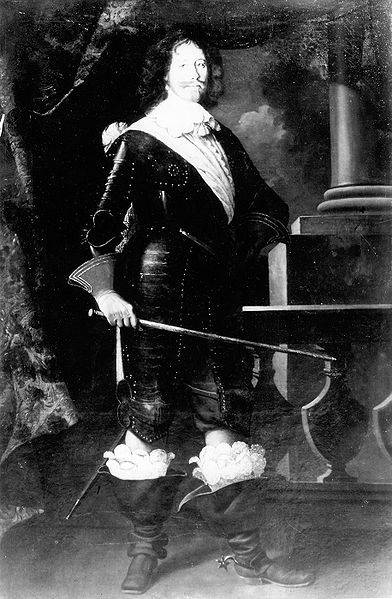
But d'Artagnan is especially vile and vile in relation to Athos' ex-wife - a mysterious woman, who in the novel is most often called Milady (My Lady, of course). In Russia, for some reason, many also call her Lady Winter, although in fact she is Lady Klarik (the title of Baron Winter is borne by her English husband's brother). The young woman is seriously in love with the Comte de Wardes, who was wounded by d'Artagnan during his mission, she sends a letter to the count in which she inquires about his health and the possibility of a meeting. Maid Cathy mistakenly hands over the letter to Planchet, d'Artagnan's servant. Allegedly deeply in love with Madame Bonacieux, a Gascon enters into correspondence with Milady on behalf of the wounded Count. At the same time, he visits her house and is convinced that Lady Clarick is absolutely indifferent to him, but Cathy is not indifferent, whom d'Artagnan easily seduces. Finally, Milady appoints an intimate meeting with the false de Varde, which takes place in the dark, and D'Artagnan enjoys the "favor" of a woman in love with another man. Then, fearing exposure, in order to end the intrigue, Milady writes a terrible insulting letter on behalf of de Wardes. The humiliated woman turns to d'Artagnan, as a person who already has a reputation in society as a dangerous duellist, with a request to protect her honor.
“To kill de Ward? Yes, with great pleasure,” replies d'Artagnan, “But not for free. And in this case money does not interest me.”
And again becomes the lover of Lady Clarke. But to fulfill his promise is not in a hurry. When Milady reminds him of him, he says:
“You shouldn’t kill de Ward - he has nothing to do with it, I joked it like that. It was funny, didn’t it? Let's go back to bed.”
To d'Artagnan's surprise, Milady does not laugh, but on the contrary, becomes enraged, while inadvertently showing him the stigma on his shoulder in the form of a lily. She tries to kill him, and the brave guard escapes from her bedroom and locks herself in Katty's room. His clothes became the legitimate trophy of Lady Clarke, he leaves the house in that she managed to give him Katie: "women's dress in flowers, a wide bonnet and cape, shoes with bare feet."
(- Alexander Kerensky is running?
- Everyone is running!)
Out of fear, d'Artagnan rushes down the street "to the cries of the patrolmen, who in some places set off after him, wailing rare passers-by" and hiding at Athos. Moreover, the servant of Athos, Grimaud, "despite his usual dumbness," greets him with the words: "What do you want, shameless person? Where do you go, slut? ”Further:“ Athos ... despite all his stolidity, burst into laughter, which was fully justified by a fancy fancy dress that presented his gaze: a hood that slashed to the floor, a skirt, rolled up sleeves and sticking out of a mustache on an agitated face ”.
Honestly, it is a pity that this episode was not included in any film version of this novel.
A little later, unfortunate Catty comes, who knew who came to the mistress at night under the guise of de Varda, and now helped d'Artagnan escape and is now afraid of her anger.
“You see, my dear, that I can do nothing for you,” D'Artagnan coldly meets.
But Aramis’s high-level mistress had just asked for a reliable maid. Katie is sent to Tours, to de Chevreuse. The poor girl can only sympathize - she fell from the fire into the fire: the duchess-conspirator in the event of what again gets off with a slight fright (the crow doesn’t peck out the crow), but who will believe that the English servant is not a coherent sent from London? Let us return to d'Artagnan: in the future, the courageous Gascon is literally shaking with fear at the thought that Milady can take revenge on him - right up to the repulsive reprisals she is accustomed to by Attos, who is accustomed to such dirty business.
So, the moral character of the heroes of the novel is very doubtful, but maybe they are selflessly loyal to France and the king, which completely atone for all sins? Also - missed the mark. "In love" with Constance Bonacieux d'Artagnan (who actually suffers from "spermotoxicosis") agrees to a very dubious undertaking - a secret trip to London to the first minister of a state hostile to France, while the purpose of the trip, in general, remains for him a secret - he is carrying a sealed letter: "To my Lord Duke of Buckingham, London" - such is the inscription on the envelope. What's in this letter? Maybe a state secret of extreme importance? And what do the two pendants conveyed by Buckingham mean? Maybe the war will start in 2 months? Or - another country has entered into an alliance with Britain, and France will have to fight against a coalition of two states? It is not known, however, that as a reward for his visit to London, d'Artagnan receives four horses with rich saddles from Buckingham and an expensive ring from the Queen. D'Artagnan's friends easily agree to take part in this adventure, and it seems that their main motive is the money that d'Artagnan has: the Musketeers have run out of money and are literally starving at that moment. And D'Artagnan has money because Constance Bonacieux stole it from her husband. And, this time, no one bothers that the "customer" is a thief. Hanging her, like Athos his wife, did not even occur to anyone. And then, during the siege of La Rochelle, Athos, overhearing the conversation between Richelieu and Milady, learns of the cardinal's order to kill Buckingham.
So, George Villiers, Baron Wadd, Duke of Buckingham, Stallmeister of the Court, Commander of the Order of the Garter, Lord Steward of Westminster, Lord Admiral of England. The king of England and Scotland, James I, in letters, takes turns calling him his wife and husband, and tenderly calls Steeny in honor of St. Stephen (whose face "shone like the face of an angel"). He retained his influence on the son of Jacob, King Charles I, who, after the death of his favorite, called him "my martyr." He pulled England into two unsuccessful wars for her - with Spain in 1625-1630. and with France, which began in 1627 and ended after his death in 1629. One of the most mediocre and despised politicians in Great Britain, whom A. Dumas playful pen turned into a positive hero.
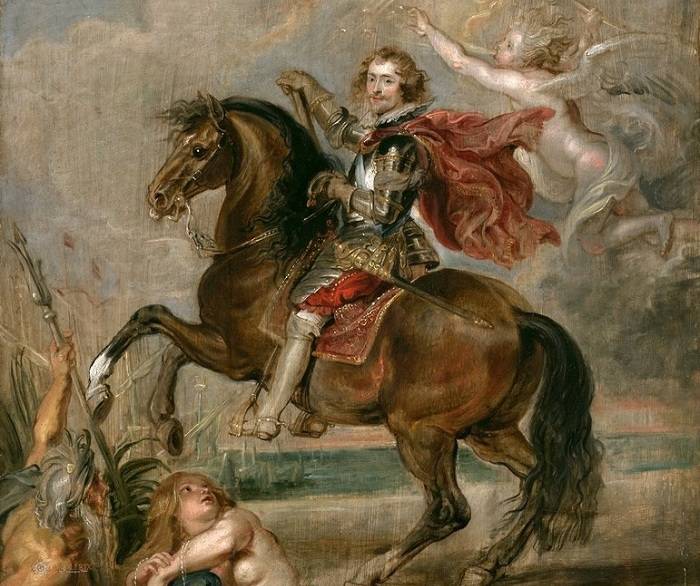
Because of Buckingham, England entered the war with France, the duke does not want to hear about a compromise, now he is preparing an assault landing to help the rebels, his life is the death of thousands, and maybe tens of thousands of French. But D'Artagnan exclaims: "The Duke is our friend! We must warn and save him." To which, in his “light phase”, Athos reasonably remarks: now is military time, this will be regarded as treason, Bastille or scaffold awaits us. D'Artagnan agrees with him, but he refuses from the idea of betraying France and his beloved king: you just need not go yourself, but send the servants: one to London, not to Bekingham, but to the English devil Milady (the same Lord Winter), another, for loyalty - to the queen.
“No,” said experienced conspirator Aramis (in her mind, apparently counting the size of the next fee), “It's also dangerous for the queen: better for one of my acquaintances to Tour” (for Duchess de Chevreuse to be the main manager of foreign tranches, of course passed)
In general, gentlemen Musketeers betrayed France. But the trouble is that they did not take into account the outstanding abilities of Lady Clarke, who was illegally arrested by their efforts immediately upon arrival in England. Taking advantage of the Musketeers ’denunciation of the Musketeers, who was not burdened with any evidence, as an excuse, Baron Vinter, who hates his daughter-in-law, seized her and, incomprehensibly, on what grounds, without charge and without a court decision, kept her locked up. But even in such conditions, Milady managed to fulfill the Richelieu order. At the end of the book, Baron Vinter (a high-ranking nobleman of the state with which France is at war!) Takes part in a disgusting comedy of self-righteousness over it, along with the musketeers. And one of the accusations is the faithful execution of the order of the head of the French government (the murder of Bekingham).
(Another highly dubious accusation is the murder of the accomplice of the state criminal de Chevreuse Constance Bonacieux).
Guys, this is already over the edge, is not it? This is not just treason, and not just espionage - it is a terrorist act against a trusted employee of Cardinal Richelieu, a political assassination committed in favor of a hostile country. Gentlemen Musketeers, if you do not agree with the policies of France and the methods of Cardinal Richelieu - resign, do not get royal salary, go to London and throw mud at your Homeland, it’s not new, neither the first nor the last. But you gave the military oath and now violated it. Fire and ax for gentlemen musketeers!
“You are cowards, you are miserable killers! Ten men have gathered you to kill one woman! ”, Milady says before her death, and it’s impossible not to agree with her.
It seems to me that Dumas was mistaken with the choice of heroes: a charismatic and strong girl with a tragic fate who fights with the enemies of France - she was worthy of becoming the true heroine of the novel.
Well, by all means the aristocrats who are bringing the revolution closer, if you trust the information that leads A. Dumas in their glorifying novel, they can hardly claim to be positive heroes.
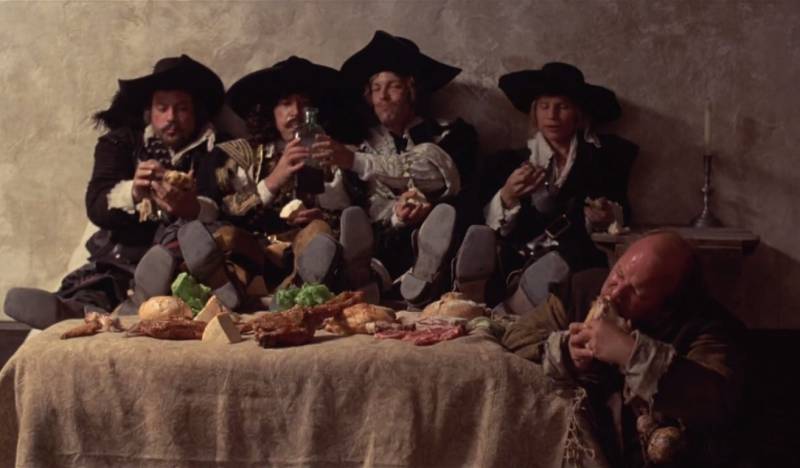
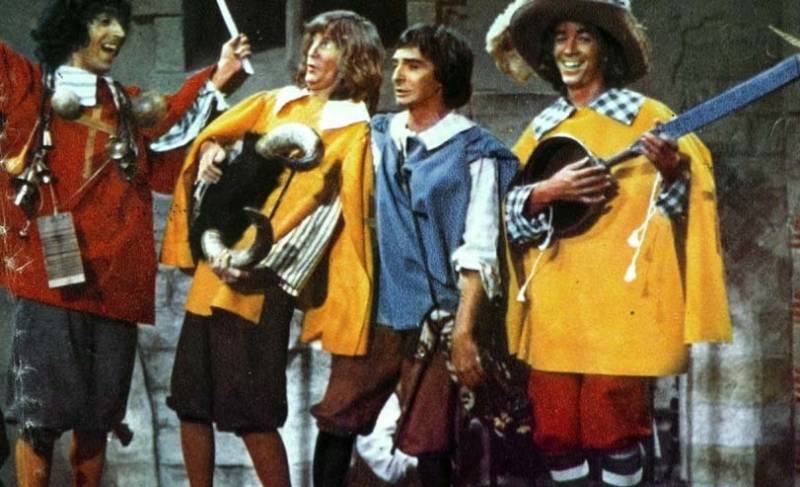
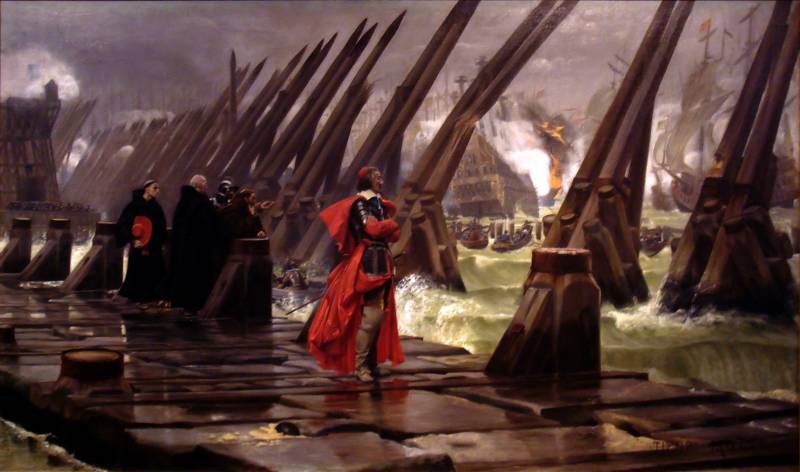
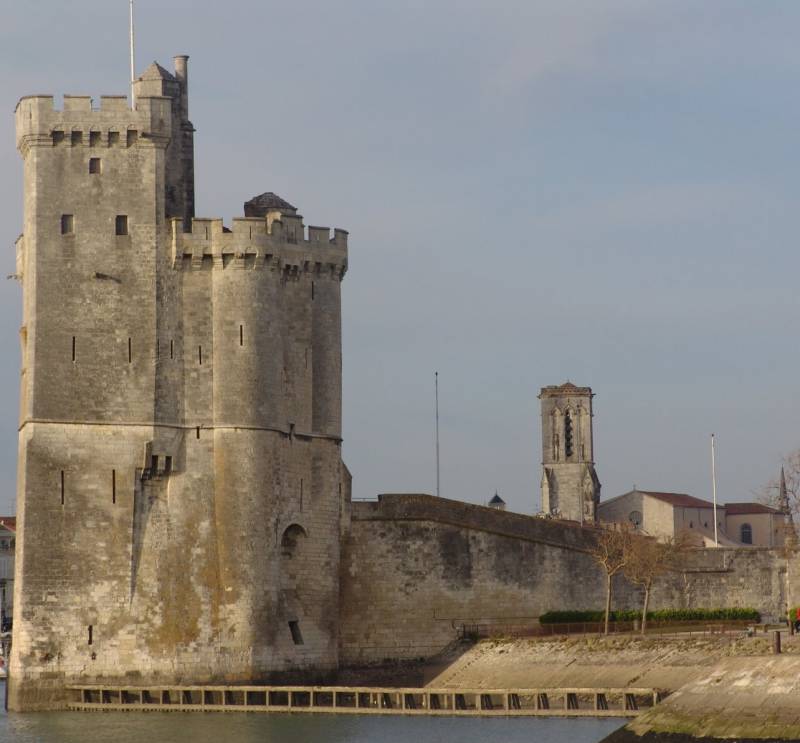
Information